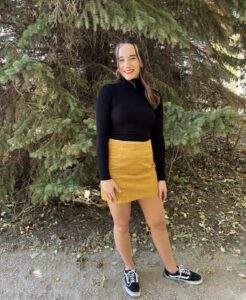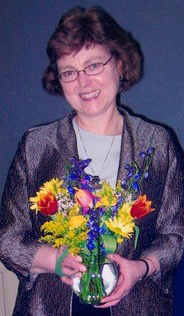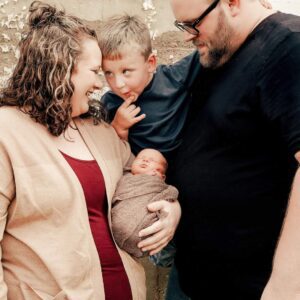

UNO Fund Student Scholarship Stories – Reagan Folda
As a student in the Sign Language Interpreting program at the University of Nebraska at Omaha, Reagan Folda understands the importance of a clear and
UNK has a proud tradition of excellence and support when it comes to Loper Athletics and enjoy great success in all sports.
Find specific areas to support within your college, department, program or area of interest.
Looking for ways to make the greatest impact to the University of Nebraska at Kearney and its students? Here are some great options.
No matter your circumstances. No matter your age or financial situation. If leaving a legacy is important to you, we can help through planned giving.
UNK AA has been working since 1906 to promote communication and interaction among more than 40,000 alumni, students, faculty, administrators and friends of the University of Nebraska at Kearney.
Husker athletic programs at the University of Nebraska-Lincoln are a source of pride for alumni and Nebraskans throughout the state and around the world.
Find specific areas to support within your college, department, program or area of interest.
Looking for ways to make the greatest impact to the University of Nebraska-Lincoln and its students? Here are some great options.
No matter your circumstances. No matter your age or financial situation. If leaving a legacy is important to you, we can help through planned giving.
NAA is a nonprofit organization that connects alumni with Dear Old Nebraska U, and with each other, for the betterment of the University of Nebraska-Lincoln.
There are many ways to give including employer matching, payroll giving, donor advised funds, tangible property, grain, stocks and more.
Find specific areas to support within your college, department, program or area of interest.
Looking for ways to make the greatest impact to the University of Nebraska Medical Center and its students? Here are some great options.
No matter your circumstances. No matter your age or financial situation. If leaving a legacy is important to you, we can help through planned giving.
The mission of the UNMC Alumni Relations Office is to serve and engage with learners and graduates through effective communications, the formation of meaningful relationships, and opportunities to invest in the advancement of the university through gifts of time, talent, and treasure.
Our athletes are competing at the Division I level in collegiate sports, not only enhance the visibility of UNO, but also to provide great benefits to all of Omaha.
Find specific areas to support within your college, department, program or area of interest.
Looking for ways to make the greatest impact to the University of Nebraska at Omaha and its students? Here are some great options.
No matter your circumstances. No matter your age or financial situation. If leaving a legacy is important to you, we can help through planned giving.
UNO AA is an organization focused on strengthening connections with more than 100,000 UNO alumni, students and friends from all over the world.
Nebraska Medicine and its research and education partner, the University of Nebraska Medical Center, share the same mission: to lead the world in transforming lives to create a healthy future for all individuals and communities through premier educational programs, innovative research and extraordinary patient care.
These funds support innovative initiatives at Nebraska Medicine that allow the academic health network to take advantage of emerging opportunities.
There are many ways to give including employer matching, payroll giving, donor advised funds, tangible property, grain, stocks and more.
Looking for ways to make the greatest impact at Nebraska Medicine? Here are some great options.
No matter your circumstances. No matter your age or financial situation. If leaving a legacy is important to you, we can help through planned giving.
The mission of the Buffett Early Childhood Institute at the University of Nebraska is to transform the lives of young children by improving their learning and development.
Every day, nearly a billion people in the world do not have enough safe and nutritious food to lead healthy and active lives. Many of them also lack access to enough clean water to meet their needs. By 2050, our global food demand will double to meet the needs of nearly 10 billion people, making water and food security one of the most urgent global challenges of our time.
Looking for ways to make the greatest impact? Here are some great options.
No matter your circumstances. No matter your age or financial situation. If leaving a legacy is important to you, we can help through planned giving.
Your giving to this area enables the president’s office to quickly direct resources to various university projects and areas across the system as needs arise.
The greatest needs of the University of Nebraska at Kearney. Gifts through the UNK Fund let you make a bigger difference on campus, your college and students.
The greatest needs of the University of Nebraska-Lincoln. Gifts through the N Fund let you make a bigger difference on campus, your college and students.
The greatest needs of the University of Nebraska Medical Center. Gifts through the Innovation Funds let you make a bigger difference on campus, your college and students.
The greatest needs of the University of Nebraska-Omaha. Gifts through the UNO Fund let you make a bigger difference on campus, your college and students.
Add your voice and your support to see the power of the crowd in action.
UNK has a proud tradition of excellence and support when it comes to Loper Athletics and enjoy great success in all sports.
Find specific areas to support within your college, department, program or area of interest.
Looking for ways to make the greatest impact to the University of Nebraska at Kearney and its students? Here are some great options.
No matter your circumstances. No matter your age or financial situation. If leaving a legacy is important to you, we can help through planned giving.
UNK AA has been working since 1906 to promote communication and interaction among more than 40,000 alumni, students, faculty, administrators and friends of the University of Nebraska at Kearney.
Husker athletic programs at the University of Nebraska-Lincoln are a source of pride for alumni and Nebraskans throughout the state and around the world.
Find specific areas to support within your college, department, program or area of interest.
Looking for ways to make the greatest impact to the University of Nebraska-Lincoln and its students? Here are some great options.
No matter your circumstances. No matter your age or financial situation. If leaving a legacy is important to you, we can help through planned giving.
NAA is a nonprofit organization that connects alumni with Dear Old Nebraska U, and with each other, for the betterment of the University of Nebraska-Lincoln.
There are many ways to give including employer matching, payroll giving, donor advised funds, tangible property, grain, stocks and more.
Find specific areas to support within your college, department, program or area of interest.
Looking for ways to make the greatest impact to the University of Nebraska Medical Center and its students? Here are some great options.
No matter your circumstances. No matter your age or financial situation. If leaving a legacy is important to you, we can help through planned giving.
The mission of the UNMC Alumni Relations Office is to serve and engage with learners and graduates through effective communications, the formation of meaningful relationships, and opportunities to invest in the advancement of the university through gifts of time, talent, and treasure.
Our athletes are competing at the Division I level in collegiate sports, not only enhance the visibility of UNO, but also to provide great benefits to all of Omaha.
Find specific areas to support within your college, department, program or area of interest.
Looking for ways to make the greatest impact to the University of Nebraska at Omaha and its students? Here are some great options.
No matter your circumstances. No matter your age or financial situation. If leaving a legacy is important to you, we can help through planned giving.
UNO AA is an organization focused on strengthening connections with more than 100,000 UNO alumni, students and friends from all over the world.
Nebraska Medicine and its research and education partner, the University of Nebraska Medical Center, share the same mission: to lead the world in transforming lives to create a healthy future for all individuals and communities through premier educational programs, innovative research and extraordinary patient care.
These funds support innovative initiatives at Nebraska Medicine that allow the academic health network to take advantage of emerging opportunities.
There are many ways to give including employer matching, payroll giving, donor advised funds, tangible property, grain, stocks and more.
Looking for ways to make the greatest impact at Nebraska Medicine? Here are some great options.
No matter your circumstances. No matter your age or financial situation. If leaving a legacy is important to you, we can help through planned giving.
The mission of the Buffett Early Childhood Institute at the University of Nebraska is to transform the lives of young children by improving their learning and development.
Every day, nearly a billion people in the world do not have enough safe and nutritious food to lead healthy and active lives. Many of them also lack access to enough clean water to meet their needs. By 2050, our global food demand will double to meet the needs of nearly 10 billion people, making water and food security one of the most urgent global challenges of our time.
Looking for ways to make the greatest impact? Here are some great options.
No matter your circumstances. No matter your age or financial situation. If leaving a legacy is important to you, we can help through planned giving.
Your giving to this area enables the president’s office to quickly direct resources to various university projects and areas across the system as needs arise.
The greatest needs of the University of Nebraska at Kearney. Gifts through the UNK Fund let you make a bigger difference on campus, your college and students.
The greatest needs of the University of Nebraska-Lincoln. Gifts through the N Fund let you make a bigger difference on campus, your college and students.
The greatest needs of the University of Nebraska Medical Center. Gifts through the Innovation Funds let you make a bigger difference on campus, your college and students.
The greatest needs of the University of Nebraska-Omaha. Gifts through the UNO Fund let you make a bigger difference on campus, your college and students.
Add your voice and your support to see the power of the crowd in action.
Home > Logan Creek


Burnett Society member Susanna Von Essen grew up a farm girl. She was raised just outside Pender, Nebraska, a town of about 1,100 people that sits along the Logan Creek.
Susanna’s parents had a farm where they grew corn, soybeans and alfalfa hay and raised cattle, pigs, chickens and geese. Susanna loved helping on the farm. She hoed cockleburs in the cornfields, stacked alfalfa hay and fed the calves. She harvested fruit and vegetables from the garden and gathered eggs from the henhouse. She was fascinated by nature and spent time discovering new types of plants and learning about animals.
As a young girl, Susanna had everything she needed. She attended a two-room country schoolhouse, which she adored. She had room to play and an environment that sparked a natural curiosity, which stayed with her for life. But it was her father’s struggles on the farm that led Susanna to her life’s calling and, ultimately, her plans to give back to the next generation. When he began raising hogs, Herman Von Essen developed severe respiratory problems. A German immigrant, he was strong and stoic, and it was unnerving to see him struggling to breathe.
“That left a deep impression on me,” she said.
The experience of watching her father prompted Susanna to spend years helping farmers breathe easier as a highly respected and accomplished pulmonologist. But she couldn’t have done it without a life-changing scholarship.
Having always been a good student, Susanna knew she could get into medical school if she applied. But she wasn’t sure how to make it happen. Her father’s pulmonary illness was progressing, and the medical bills were piling up. So she applied for every scholarship she could find. Finally, she received a letter informing her she had been awarded a four-year Regents Scholarship to the University of Nebraska–Lincoln.
“I can still remember the moment I got that letter,” she said.
Susanna majored in zoology and German at UNL. She loved Lincoln and city life and was happy to spread her wings without being too far from home, where she was still needed.
It was halfway through her junior year that Susanna’s father passed. She knew it was coming and had worked ahead in all her classes to be ready.
“I had to be strong for my mother,” she said, “and not add to her worries by letting my grades slip.”
Susanna knew she likely would not have attended the university if not for her scholarship. But after her dad passed, she was certain she would not have graduated without it.
As a senior at UNL, Susanna applied for a Fulbright scholarship to study parasitology in Germany and also applied to medical school in the U.S. She received good news on both. After completing her Fulbright year, she enrolled in medical school at Washington University in St. Louis. She came back to Nebraska to complete her residency and became the University of Nebraska Medical
Center’s first pulmonology fellow. Later, she joined the UNMC faculty and began researching agricultural health.
“I collected grain dust from our hometown grain elevator,” she said, “and did a variety of research.”
Susanna led UNMC’s Rural Research Initiative, in which she worked to strengthen UNMC’s rural outreach. She conducted free lung screenings for farmers during Husker Harvest Days and treated countless men and women suffering from pulmonary diseases.
As a researcher, physician and academic, Susanna has directly impacted thousands of lives. But she knew what a difference it made for her to receive the Regents Scholarship and decided to give back even more.
“In reflecting on my work life and the money I’ve saved, I really wanted to give a chance to other rural students,” she said. “There are students in need in every community, but I wanted to give a leg up to somebody who maybe faced some of the same struggles that I did.”
Susanna has established bequests for both UNL and UNMC to support student scholarships. She hopes her gifts can enable students to not only attend the university but also free them up for research projects.
“Whether you go on to graduate studies or medical school, those projects are so important for the next step,” she said. “Research takes time, so the scholarship can be very freeing.”
Susanna knows how much she owes to her education. It brought her to a new world of possibilities outside the farm while allowing her to stay rooted in the life she loved there.
It was an experience the impact of which can still be felt in Susanna’s work and contributions to the field of agricultural health. And now, it’s an experience she hopes to pass on.


As a student in the Sign Language Interpreting program at the University of Nebraska at Omaha, Reagan Folda understands the importance of a clear and


As a full-time social worker, Matthew Beckmann works every day to assist those who most need support. In the course of working on behalf of


“I think education is very important, and all of these young people need to have a career. That’s our future. The young people become educated and good citizens.”
1010 Lincoln Mall, Suite 300
Lincoln, NE 68508
800-432-3216
[email protected]
The University of Nebraska Foundation (EIN: 47-0379839) is exempt from federal income tax under the provisions of Section 501(c)(3) of the Internal Revenue Code.